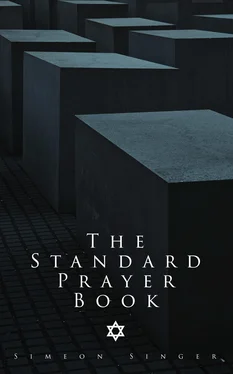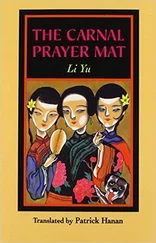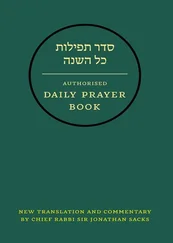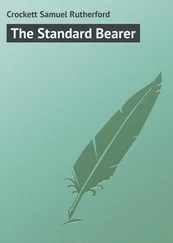Thou wast the same ere the world was created; thou hast been the same since the world hath been created; thou art the same in this world, and thou wilt be the same in the world to come. Sanctify thy name upon them that sanctify it, yea, sanctify thy name throughout thy world; and through thy salvation let our horn be exalted and raised on high. Blessed art thou, O Lord, who sanctifiest thy name amongst the many,
Thou art the Lord our God in heaven and on earth, and in the highest heaven of heavens. Verily thou art the first and thou art the last, and beside thee there is no God. O gather them that hope for thee from the four corners of the earth. Let all the inhabitants of the world perceive and know that thou art God, thou alone, over all the kingdoms of the earth. Thou hast made the heavens and the earth, the sea and all that is therein; and which among all the works of thy hands, whether among those above or among those beneath, can say unto thee, What doest thou? Our Father who art in heaven, deal kindly with us for the sake of thy great name by which we are called; and fulfil unto us, O Lord our God, that which is written, At that time will I bring you in, and at that time will I gather you; for I will make you a name and a praise among all the peoples of the earth, when I bring back your captivity before your eyes, saith the Lord.
Numbers xxviii. 1–8.
And the Lord spake unto Moses, saying, Command the children of Israel, and say unto them, My oblation, my food for my offerings made by fire, of a sweet savor unto me, shall ye observe to offer unto me in its due season. And thou shalt say unto them, This is the offering made by fire which ye shall offer unto the Lord; he-lambs of the first year without blemish, two day by day, for a continual burnt offering. The one lamb shalt thou offer in the morning, and the other lamb shalt thou offer at even; and the tenth part of an ephah of fine flour for a meal offering, mingled with the fourth part of an hin of beaten oil. It is a continual burnt offering, which was ordained in mount Sinai f or a sweet savor, an offering made by fire unto the Lord. And the drink offering thereof shall be the fourth part of an hin for the one lamb: in the holy place shalt thou pour out a drink offering of strong drink unto the Lord. And the other lamb shalt thou offer at even: as the meal offering of the morning, and as the drink offering thereof, thou shalt offer it, an offering made by fire, of a sweet savor unto the Lord.
Leviticus i. 11.
And he shall slay it on the side of the altar northward before the Lord: and Aaron's sons, the priests, shall sprinkle its blood upon the altar round about.
On Sabbath the following is added:—
Numbers xxviii. 9, 10.
And on the sabbath day two he-lambs of the first year without blemish, and two tenth parts of an ephah of fine flour for a meal offering, mingled with oil, and the drink offering thereof: this is the burnt offering of every sabbath, beside the continual burnt offering, and the drink offering thereof.
On New Moon the following is added:—
Numbers xxviii. 11–15.
And in the beginnings of your months ye shall offer a burnt offering unto the Lord; two young bullocks, and one ram, seven he-lambs of the first year without blemish; and three tenth parts of an ephah of fine flour for a meal offering, mingled with oil, for each bullock; and two tenth parts of fine flour for a meal offering, mingled with oil, for the one ram; and a several tenth part of fine flour mingled with oil for a meal offering unto every lamb; for a burnt offering of a sweet savor, an offering made by fire unto the Lord. And their drink offerings shall be half an hin of wine for a bullock, and the third part of an hin for the ram, and the fourth part of an hin for a lamb: this is the burnt offering of every month throughout the months of the year. And one the-goat for a sin offering unto the Lord; it shall be offered beside the continual burnt offering, and the drink offering thereof.
Mishnah, Treatise Zebachim, ch. v.
1. Which are the places where the sacrifices were offered?—Those that were most holy were slain on the north side of the altar: the bull and the he-goat of the Day of Atonement were slain on the north side; their blood was received in a vessel of ministry on the north side, and had to be sprinkled between the staves of the ark, and towards the veil, and upon the golden altar: one of these sprinklings omitted rendered the whole ceremony invalid. The remaining blood the priest poured out at the western base of the outer altar; if, however, he did not do so, the omission did not render the ceremony invalid.
2. The bulls and he-goats which were to be wholly burnt. were slain on the north side; their blood was received in a vessel of ministry on the north side, and had to be sprinkled towards the veil and upon the golden altar: one of these sprinklings omitted rendered the whole ceremony invalid. The remaining blood the priest poured out at the western base of the outer altar; if, however, he failed to do so, it did not render the ceremony invalid: both these and the preceding offerings were burnt in the repository of ashes.
3. The sin offerings of the congregation and of the individual.—These are the sin offerings of the congregation: the he-goats offered on the new moon and on the festivals. They were slain on the north side; their blood was received in a vessel of ministry on the north side, and of this blood four sprinklings had to be made, one upon each of the four corners of the altar. How was this done? The priest went up the ascent, passed on to the middle terrace that surrounded the altar, and came successively to the south-east, the north-east, the north-west and the south-west corners. The remaining blood he poured out at the southern base of the altar. These sacrifices might be eaten, dressed after any manner, by the males of the priesthood, within the hangings of the court, the same day and evening until midnight.
4. The burnt offering belonged to the class of the most holy. It was slain on the north side; its blood was received in a vessel of ministry on the north side; and of its blood two sprinklings had to be made (at opposite angles of the altar) so as to constitute four, (a portion of the blood thus reaching each of the four sides of the altar). This offering had also to be flayed, dismembered and totally consumed by fire.
5. The peace offerings of the congregation and the trespass offerings.—These are the trespass offerings: the trespass offerings for robbery, for profane appropriation of sanctified objects, for carnally knowing a handmaid already promised in marriage; the trespass offering of a Nazirite who has become defiled by a dead body; the trespass offering of a leper at his cleansing; the trespass offering of one who is in doubt whether he has committed an act that has to be atoned for by a sin offering. All these were slain on the north side; their blood was received in a vessel of ministry on the north side; and of their blood two sprinklings had to be made at the altar in such a manner as to constitute four. These sacrifices might be eaten, dressed after any manner, by the males of the priesthood, within the hangings of the court, the same day and evening until midnight.
6. The thank offering and the ram of the Nazirite were holy in a minor degree. They might be slain in any part of the court, of their blood two sprinklings had to be made at the altar in such a manner as to constitute four; and they might be eaten, dressed after any manner, by any person, in any part of the city, the same day and until midnight. To the portions thereof belonging to the priests the same rule 'applied as to the rest, except that the former might only be eaten by the priests, their wives, their children and their slaves.
7. The peace offerings were also holy in a minor degree. They might be slain in any part of the court; of their blood two sprinklings had to be made at the altar in such a manner as to constitute four, and they might be eaten, dressed after any manner, by any person, in any part of the city, during two days and one night. To the portions thereof belonging to the priests the same rule applied as to the rest, except that the former might only be eaten by the priests, their wives, their children and their slaves.
Читать дальше












